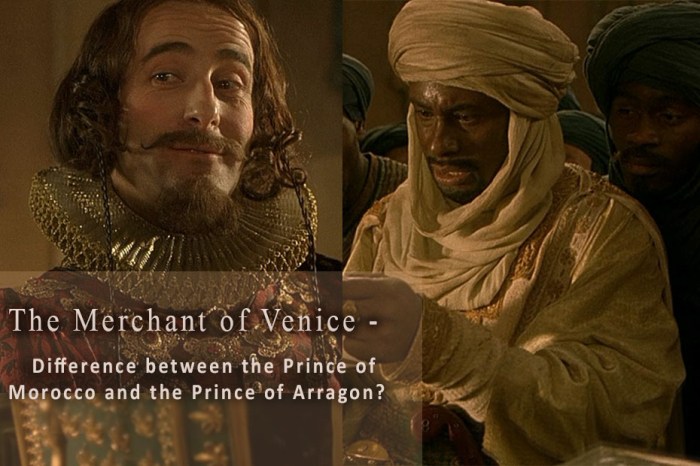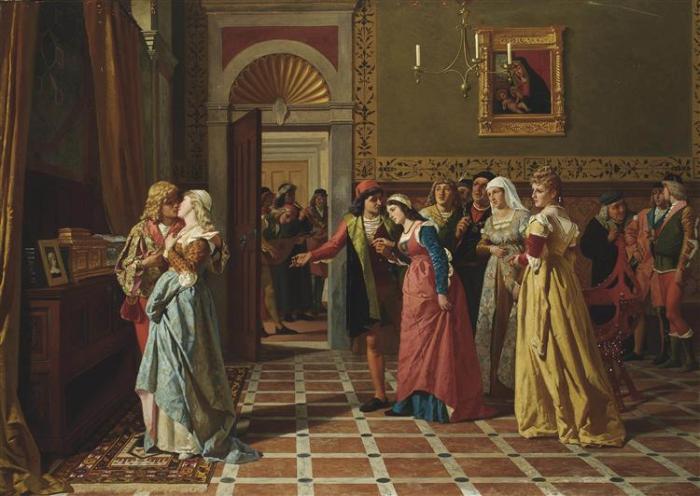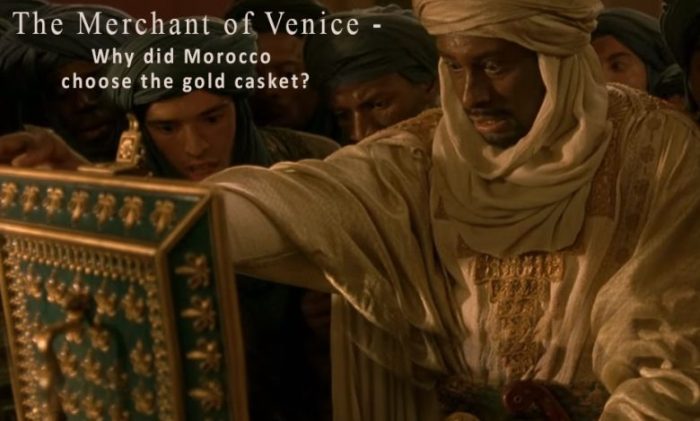Prince of morocco the merchant of venice – The Prince of Morocco, a prominent character in Shakespeare’s The Merchant of Venice, embodies the complexities of cultural identity, ambition, and the pursuit of love. His journey in the play offers insights into the social and cultural landscape of the Renaissance era, while also exploring universal themes of prejudice, wealth, and the nature of true worth.
The Prince of Morocco’s character stands in stark contrast to that of Portia, the play’s central protagonist. While Portia is intelligent, independent, and defies societal norms, the Prince of Morocco is driven by a desire for wealth and status. His motivations are shaped by his cultural background and the expectations placed upon him as a foreign prince.
Character Analysis
The Prince of Morocco is a complex and multifaceted character in Shakespeare’s The Merchant of Venice. His motivations, values, and personality traits set him apart from other characters in the play, particularly Portia. His character contrasts with Portia’s intelligence, wit, and independence, highlighting the societal expectations and limitations faced by women in the play’s setting.
Significance in the Play
- Represents the exotic and alluring aspect of wealth and power.
- Contributes to the play’s exploration of the themes of love, identity, and the nature of true worth.
- Provides a foil to Bassanio, who ultimately wins Portia’s hand.
Cultural and Historical Context

The Prince of Morocco’s background, ethnicity, and social status significantly influence his behavior and interactions with other characters. As a wealthy and powerful ruler from a distant land, he embodies the exotic and alluring aspects of foreign cultures that fascinated Elizabethan audiences.
Play’s Portrayal of Race and Culture
The play’s portrayal of the Prince of Morocco reflects the complex and often ambivalent attitudes towards race and culture prevalent in Shakespeare’s time. While he is initially admired for his wealth and exoticism, his failure to win Portia’s hand highlights the limitations and prejudices faced by non-Christian characters in the play.
Symbolism and Allegory: Prince Of Morocco The Merchant Of Venice
The Prince of Morocco is associated with several symbolic meanings in the play.
Wealth and Power
His wealth and exotic origins symbolize the allure of material possessions and the power they confer.
Prejudice and Discrimination
His failure to win Portia’s hand represents the prejudices and discrimination faced by non-Christian characters in the play’s setting.
Casket-Choosing Scene
His choice of the gold casket allegorizes his superficiality and preoccupation with wealth, ultimately leading to his downfall.
Literary Techniques

Shakespeare uses various literary techniques to portray the Prince of Morocco.
Imagery and Language
Shakespeare employs vivid imagery and poetic language to describe the Prince’s exotic appearance, luxurious attire, and self-assured demeanor.
Dialogue
The Prince’s dialogue reveals his arrogance, entitlement, and superficiality, contrasting with Portia’s intelligence and wit.
Monologue, Prince of morocco the merchant of venice
His monologue before choosing the gold casket provides insight into his motivations and values, highlighting his belief in the power of wealth and his desire for a beautiful wife.
Adaptations and Interpretations

The Prince of Morocco’s character has been adapted and interpreted differently in various stage and screen productions.
Stage Adaptations
- In some adaptations, the Prince’s character is portrayed as more sympathetic and complex, highlighting the challenges he faces as a non-Christian suitor.
- Other adaptations emphasize his arrogance and superficiality, portraying him as a villainous character.
Screen Adaptations
- Film adaptations often portray the Prince as a charismatic and exotic figure, embodying the allure of foreign cultures.
- In some adaptations, the Prince’s failure to win Portia’s hand is seen as a commentary on the play’s exploration of race and prejudice.
Actors’ Performances
Different actors’ interpretations of the Prince of Morocco have significantly influenced the character’s portrayal. Some actors emphasize his arrogance and entitlement, while others bring out his vulnerability and desire for love.
Question Bank
What is the significance of the Prince of Morocco’s casket choice?
The Prince of Morocco’s choice of the gold casket reflects his materialistic nature and his belief that wealth and appearance hold the greatest value.
How does the Prince of Morocco’s character contribute to the play’s themes?
The Prince of Morocco’s character highlights the themes of cultural differences, prejudice, and the importance of valuing individuals based on their true worth, rather than their external attributes.
What is the historical and cultural context of the Prince of Morocco’s character?
The Prince of Morocco is a representation of the Moors, a Muslim people who ruled parts of North Africa and Spain during the Renaissance era. His character reflects the complex relationships between different cultures and religions during this time period.